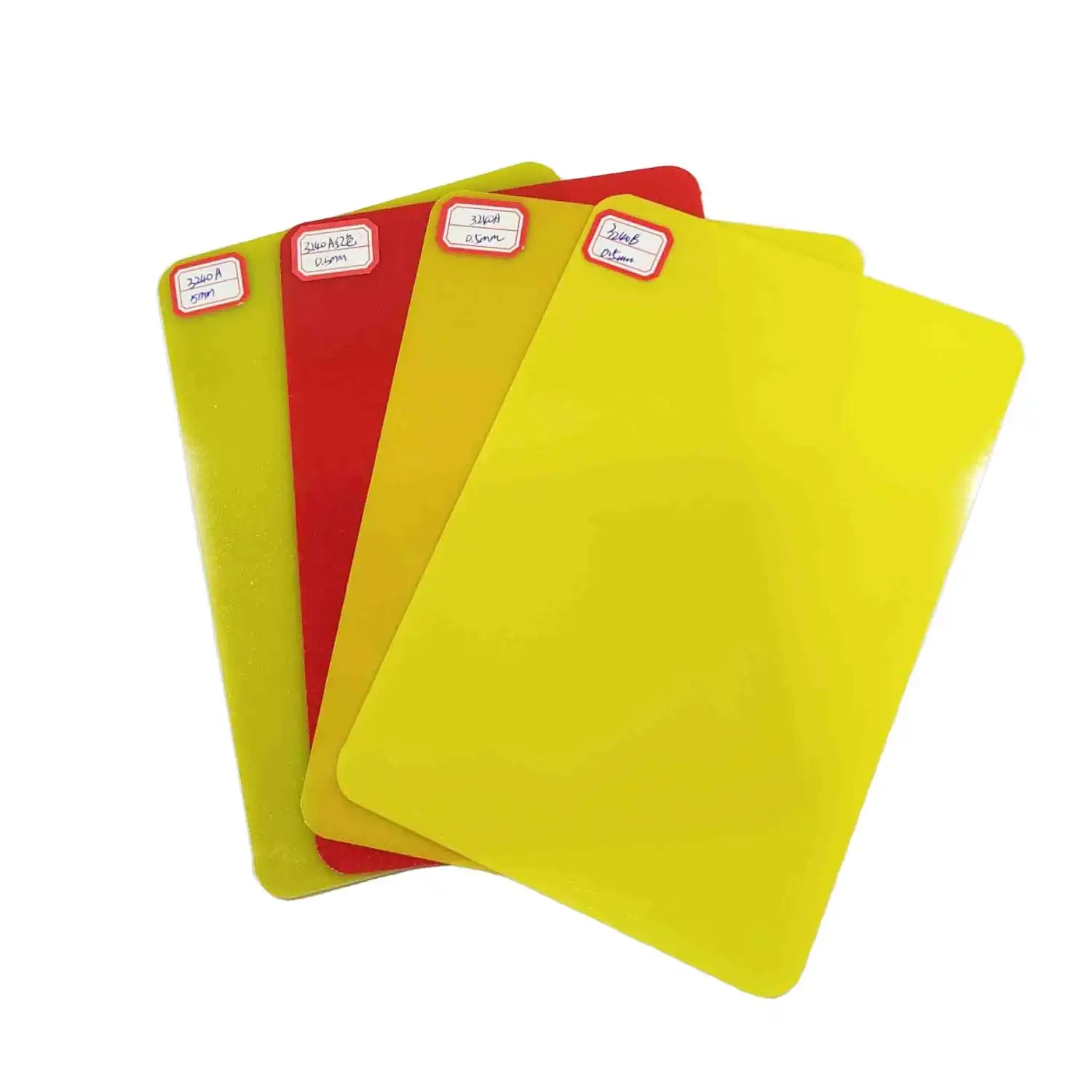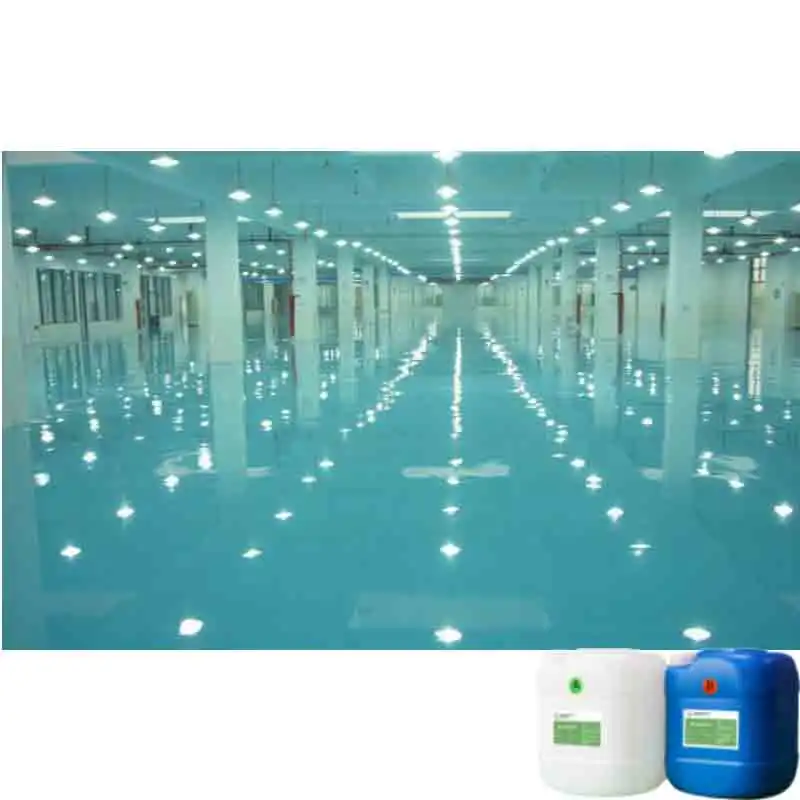What are the different thicknesses available for Epoxy Resin Sheets?
2024-05-15 17:06:24
Introduction
Epoxy resin sheets are flexible materials with a wide run of applications over businesses, extending from aviation and car to development and hardware. One imperative angle to consider when selecting epoxy sheets for a particular application is their thickness. The thickness of sheets can change depending on variables such as the expecting utilize, auxiliary prerequisites, and fabricating processes. In this article, we will investigate the diverse thicknesses accessible for sheets and their suggestions in different applications.Understanding the range of thickness options allows engineers, designers, and manufacturers to make informed decisions when selecting sheets for their projects.
From thin, flexible sheets used in electronic applications to thick, rigid panels employed in structural reinforcement, sheets come in a variety of thicknesses to suit diverse needs. By examining the available thickness options and their respective advantages and limitations, we can gain insight into the optimal selection of sheets for specific applications.
Join us as we delve into the world of sheets and uncover the importance of thickness considerations in achieving desired performance, functionality, and durability in engineering and manufacturing endeavors.
Understanding The Thickness
Epoxy sheets are essential materials used in a myriad of applications across various industries, each demanding specific properties to meet their requirements. Among these properties, thickness stands out as a crucial parameter, influencing the mechanical strength, flexibility, and functionality of sheets. In this article, we will delve into the significance of sheet thickness, exploring its implications in different applications and industries.
Range of Thickness Options
Epoxy resin sheets are available in a wide range of thickness options, spanning from ultra-thin films measuring micrometers to thick panels exceeding several inches. The choice of thickness depends on the intended application and the performance characteristics required. For instance, thin epoxy resin films are commonly used in electronic applications for their flexibility, dielectric properties, and compatibility with circuit board assembly processes. Conversely, thicker epoxy resin panels find utility in structural reinforcement, where rigidity, strength, and durability are paramount.
Implications in Different Industries
The importance of sheet thickness varies across industries, with each sector having unique requirements and standards. In the aerospace industry, for example, thin epoxy resin films are utilized for lightweight aircraft components, such as interior panels and insulation materials, to minimize weight and enhance fuel efficiency. In contrast, thick epoxy resin panels are employed in structural applications, such as aircraft wings and fuselage sections, to provide robustness and resistance to mechanical stresses.
Similarly, in the automotive sector, sheets of varying thicknesses are utilized for diverse applications, including body panels, underbody protection, and interior components. Thin epoxy resin films may be used for decorative trims and surface finishes, while thicker panels are employed for crash protection and structural reinforcement. Understanding the specific performance requirements and load conditions is essential for selecting the appropriate thickness of sheets in automotive design and manufacturing.
In the construction industry, sheets serve multiple purposes, ranging from architectural finishes and protective coatings to structural reinforcements and fireproofing materials. The choice of thickness depends on factors such as building codes, safety regulations, and environmental conditions. Thicker epoxy resin panels are often preferred for load-bearing structures, façade cladding, and fire-resistant barriers, whereas thinner films may be used for decorative purposes and surface coatings.
Common Thickness Ranges
For general applications, sheets are available in thicknesses ranging from as thin as 0.2mm up to 50mm. The selection of thickness depends largely on the intended use of the sheet, whether for electrical insulation, mechanical stability, or moisture resistance.
Specialized Epoxy Sheets: FR4
FR4 is a specific types of sheets known for its high strength and excellent insulation properties. FR4 sheets, recognized for their flame-retardant properties, range from 0.5mm to 50mm in thickness. It is widely used in electrical and mechanical applications due to its durability and cost-effectiveness compared to other grades.

Choosing the Right Thickness for Your Application
Selecting the right thickness is crucial. Thinner sheets are typically more flexible and easier to manipulate, suitable for intricate parts and electrical applications where fine detail is necessary. Conversely, thicker sheets provide better structural integrity and are ideal for high-load applications where durability is a priority.
Conclusion
In conclusion, sheets offer a versatile solution for a wide range of applications across industries, with thickness playing a critical role in determining their performance and suitability. Understanding the common thickness ranges of sheets allows engineers, designers, and manufacturers to make informed decisions when selecting materials for specific projects.
From ultra-thin films used in electronic applications to thick panels employed in structural reinforcement, sheets are available in a variety of thicknesses to accommodate diverse requirements. Ultra-thin films provide flexibility and insulation for printed circuit boards, while thin sheets offer a balance of strength and weight reduction for surface coatings and decorative finishes. Moderate-thickness sheets provide enhanced mechanical properties for structural reinforcement and insulation, while thick panels offer superior strength and durability for heavy-duty applications.
Custom thickness options further enhance the versatility of Epoxy resin sheets, allowing for tailored solutions to meet unique project specifications. Manufacturers offer a range of customization options, including thickness variations, reinforcements, and special formulations, to address the diverse needs of customers across industries.
By selecting the appropriate thickness of sheets, stakeholders can achieve optimal performance, reliability, and cost-effectiveness in their projects. Whether used in aerospace, automotive, construction, electronics, or industrial applications, sheets contribute to innovation and advancement in material engineering, driving progress and excellence in various sectors.
In essence, the diverse thickness options of sheets underscore their adaptability and versatility, making them indispensable materials for modern engineering and manufacturing endeavors. With a thorough understanding of thickness considerations, stakeholders can leverage the unique properties of sheets to achieve their desired outcomes, ensuring success and sustainability in a dynamic and evolving industrial landscape.
Contact Us
As a professional manufacturer and supplier, we provide high-quality epoxy resin sheets,suitable for a broad range of applications. Our products are produced in a GMP-certified facility, ensuring high standards and reliability. We offer large stock volumes, comprehensive certifications, and support OEM services. With fast delivery, secure packaging, and support for testing, we welcome you to contact us for your epoxy resin sheet needs.
In summary, whether you need thin flexible sheets for electrical insulation or thick robust sheets for mechanical applications, the variety available meets a broad spectrum of industrial requirements.







